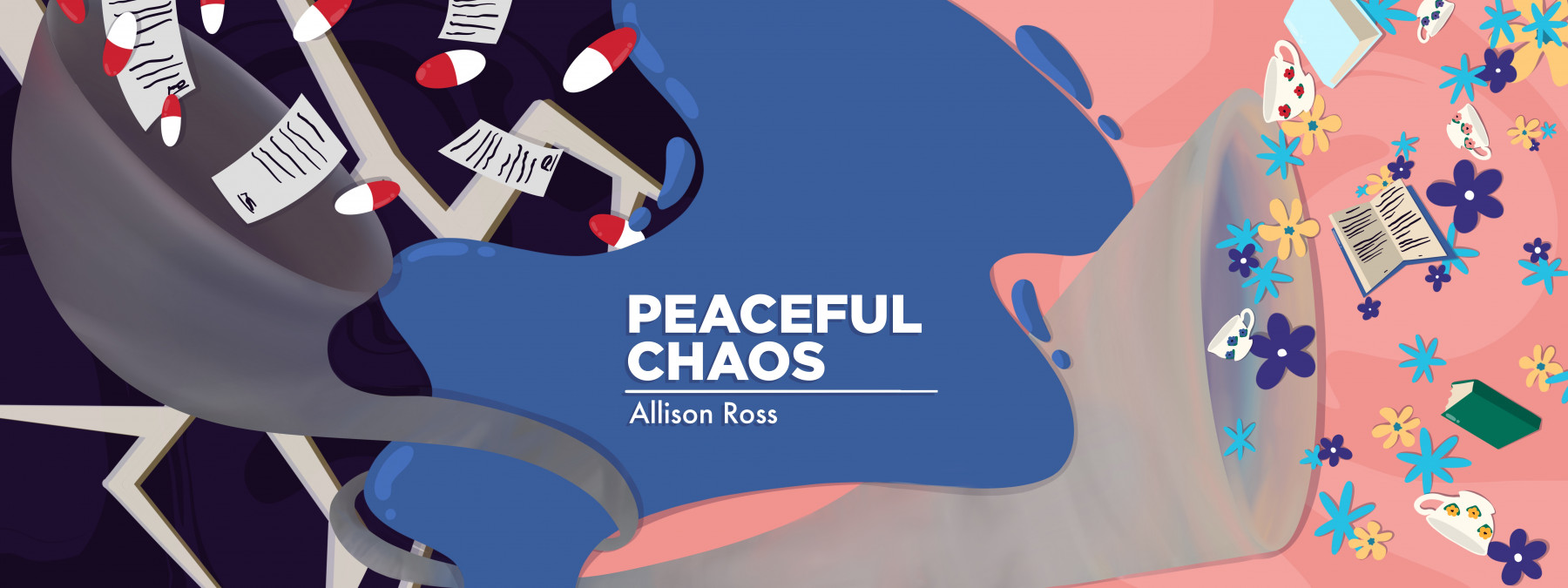What Do We Do About Stress?

The topic of stress is much too familiar to autoimmune disease patients. Even in remission, I’m not immune to the overwhelming feeling that comes when my cortisol levels spike.
I’m not a physician or a researcher, and plenty of studies about the science behind stress are available to delve into. I’m less interested in the chemical imbalance behind stress as I am in the tangible effects of it, and how to control them. Stress is undeniably intertwined with chronic conditions, so if I explore my personal experience to learn more about my body and mind, I can create a better quality of life for myself.
One question I often wonder about is whether stress is a cause or an effect of being sick. Is it a trigger, or is it what happens in the aftermath of diagnosis? My suspicion is that both are true.
At the onset of my disease, doctors chalked up my symptoms to being an overworked, stressed teen, when in reality the signs pointed to vasculitis. (Fortunately, I eventually was diagnosed and was able to move forward with treatment.) But it’s interesting that stress was the default cause they suspected, in the absence of other leads. Could such a common phenomenon really be so life-threatening?
Regardless of the answer, the medical community seems to agree that stress does exacerbate illness symptoms. When we get bad news about our health — an initial diagnosis, a relapse after a period of absent inflammation, etc. — that in itself is a catalyst for more stress. So, it’s easy to slip into a harmful pattern: We’re unhealthy, so we stress about it, which further damages our health, and our body can’t keep up. This cycle persists, over and over, until either we find a way to break it or our health improves.
And being sick isn’t the only thing we have to worry about. Naturally, living a full life comes with the latent stresses of family, career, travel, and relationships. Even fixation on details of pleasant things, such as enjoyable hobbies or a much-needed vacation, adds stress to our lives precisely when we’re trying to get rid of it.
For all the efforts we make to keep stress under control, it’s often truly unavoidable. Some patients might feel the added ingredients of anxiety and depression, and this complexity of emotions can brew a concoction poisonous to both mental and physical health.
But what can we do to cope? To me, there are two options: harness stress to our benefit or eliminate it.
As a professional musician, part of my training involves capturing stress and rendering the “bad” feelings into “exciting” ones. For example, the heightened adrenaline I feel before a concert is also what propels me onstage to entertain. Being able to harness the butterflies in my stomach is part of the craft of an artistic performance.
But I also know what it feels like to be overwhelmed and out of control, and that’s not as fun. Layers of “bad” stress from various areas can overlap for an extended period, without any relief. This is what can happen when someone is searching for a diagnosis while still combating symptoms of their unknown disease or experimenting with a new treatment regimen.
Regardless of how stress affects us, most patients agree that we should attempt to tamper it as much as possible. For me, that takes many forms: enjoying a hot bath, engaging in a calm tea-brewing ritual, or simply petting my dogs. And, of course, the foundation of a solid sleep schedule and healthy diet puts me in a good place to fight stress when it is unavoidable.
Do you have a reliable method for self-care? Beyond basic health needs, I encourage you to not be afraid to take care of yourself in extravagant ways. Take a longer nap than you should. Enjoy that sumptuous dessert. Sink into the couch and call a friend. I like to think of occasional decadence as a counterbalance to the unusual challenges that come hand-in-hand with sickness.
The finer things in life can soothe us and help to alleviate nagging issues that are part of a chronic illness journey. If stress won’t go away, we can at least decide how to successfully cope with it.
Be kind to yourself today, and don’t forget to take care of your mind and heart as well as your body. Peace!
***
Note: ANCA Vasculitis News is strictly a news and information website about the disease. It does not provide medical advice, diagnosis, or treatment. This content is not intended to be a substitute for professional medical advice, diagnosis, or treatment. Always seek the advice of your physician or other qualified health provider with any questions you may have regarding a medical condition. Never disregard professional medical advice or delay in seeking it because of something you have read on this website. The opinions expressed in this column are not those of ANCA Vasculitis News or its parent company, Bionews, and are intended to spark discussion about issues pertaining to ANCA vasculitis.








Comments
Katharine A Weissmann
Your articles are very much appreciated!! I look forward to reading them!
Thank you!
Frine
I enjoyed reading this article
Kathleen Banks
Very interesting. We are 10 months into diagnosis, treatment and remission. Any advice is greatly appreciated. Thank you.
JOHN RUDKIN
Thank you ,after 2 years of coping and living and making a new normal life With ANCA I was
deverstated to be informed I was in relapse, the good news is Retuxiban over and done with
in 2 weeks being positive is the only way, I am an artist ,painting pictures I have enough use in my damaged hand to enjoy I am in heaven savour the moment!
Thank you so much